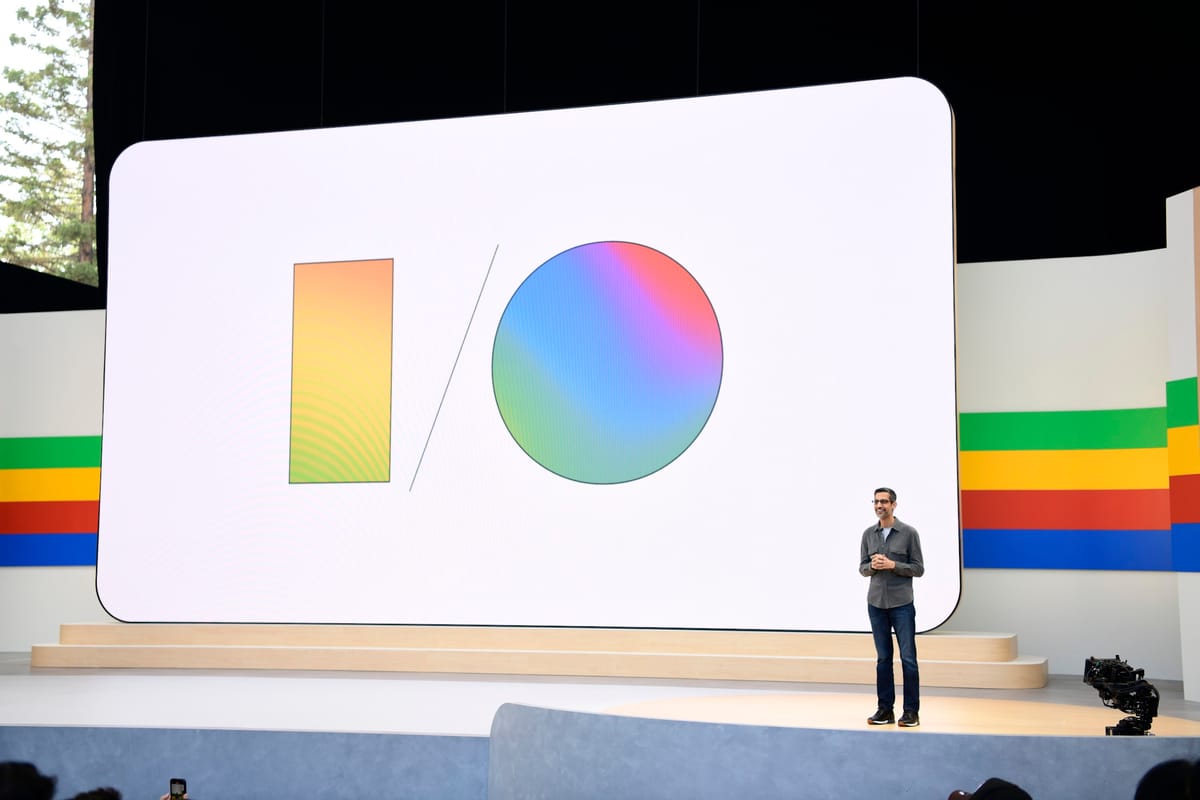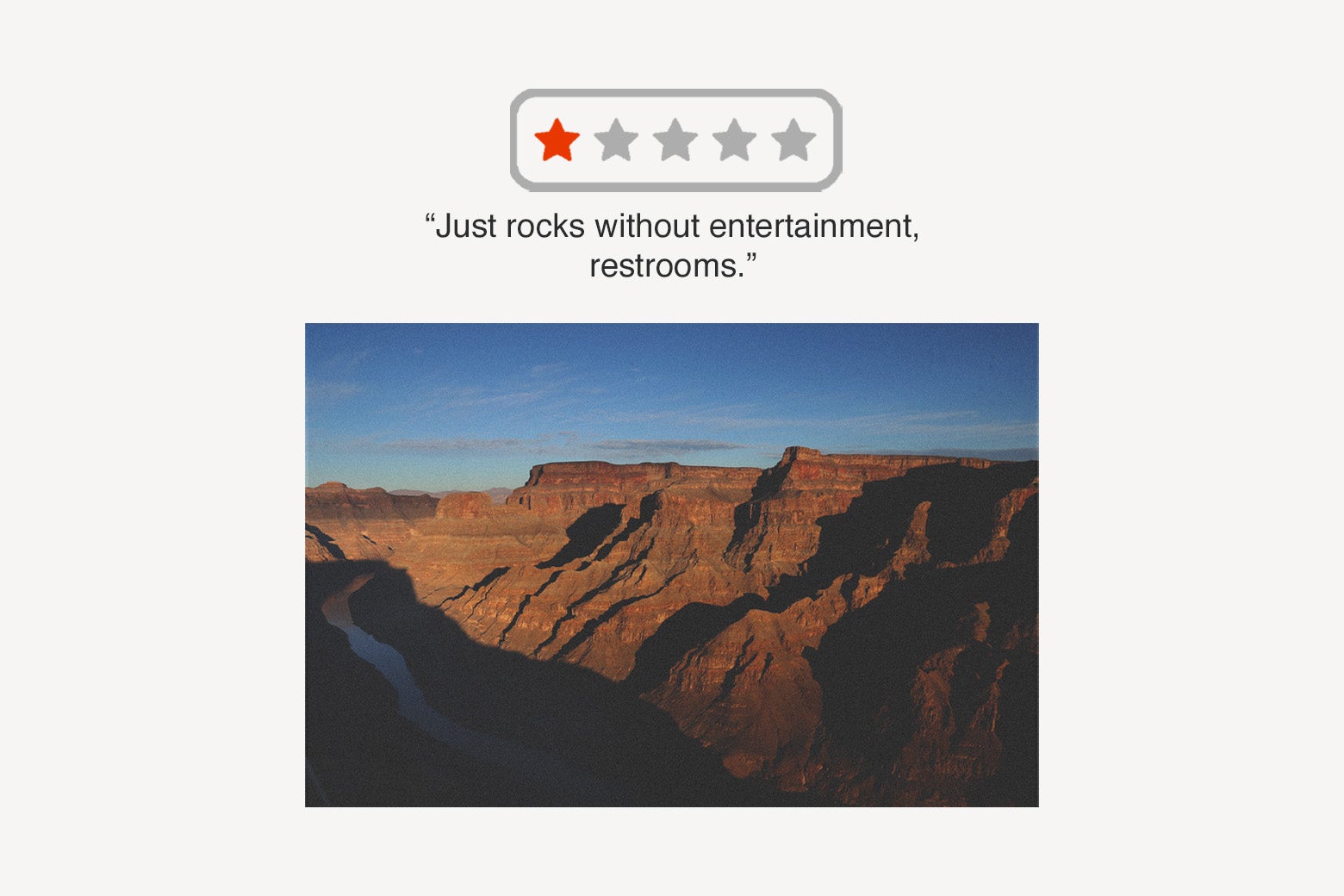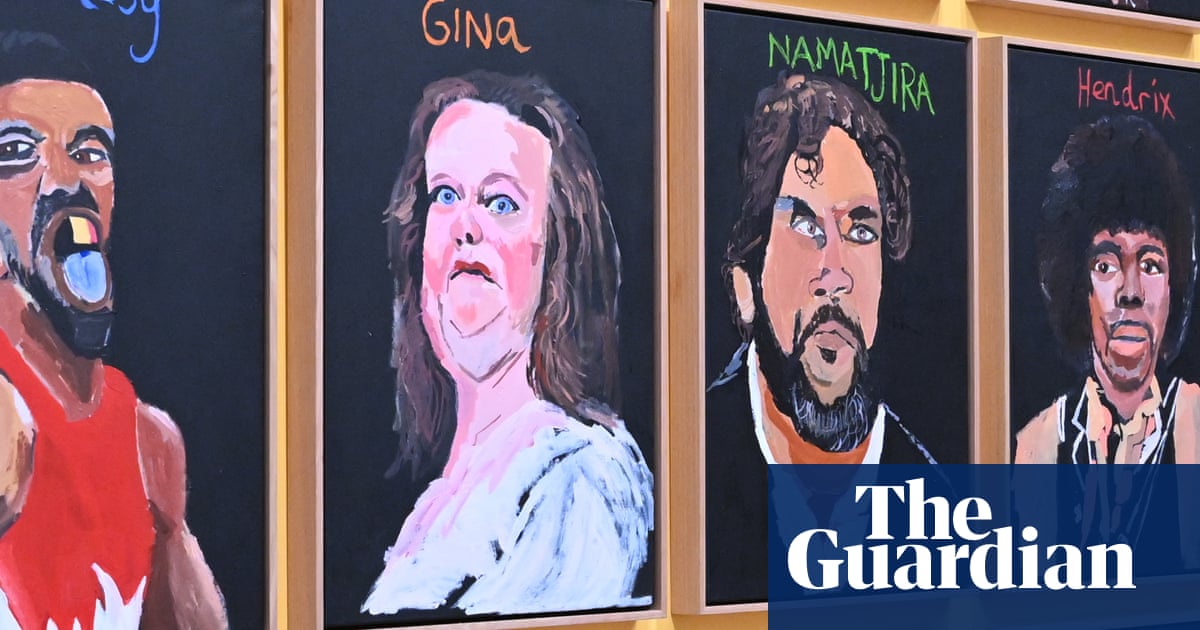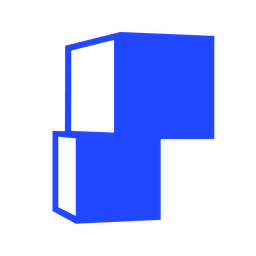This week's best things
Google's new AI-powered products, an exploration of one-star reviews, managing your energy, preparing kids for the post-digital age, a discarded pineapple, and Australia's richest woman unhappy with a portrait.

Google’s broken link to the web
This has been coming for a while but at this week's Google I/O conference, Google CEO Sundar Pinchai announced the launch of a number of new, AI-powered tools and products.
Including search.
Casey Newton has a good roundup on this news.
"Google’s idea for the future of search is to deliver ever more answers within its walled garden, collapsing projects that would once have required a host of visits to individual web pages into a single answer delivered within Google itself.
The company’s AI-powered search results, which it calls Search Generative Experience, are coming to all users in the United States soon, Google announced today. By the end of 2024, they will appear at the top of results for 1 billion users.
[...] A quarter-century into its existence, a company that once proudly served as an entry point to a web that it nourished with traffic and advertising revenue has begun to abstract that all away into an input for its large language models."
Ultimately moves like this mean search engines like Google will push less traffic to websites.
As we've seen elsewhere with the collapse in referral traffic from social this will likely be an irreversible trend.
Revise your plans accordingly.
As it says in the Platformer article "“Web publishers brace for carnage as Google adds AI answers,” read an accurate headline in the Washington Post on Monday [...] it was hard to escape the feeling that the web as we know it is entering a kind of managed decline"
In more positive related news, Google also announced a new version of its SynthID watermarking tool which flags AI-generated content, "Google’s SynthID watermarking tool can already detect AI-generated images and audio, and now it encompasses more media."

The AI can do spreadsheets now
For a less impressed and generally more harumphing take on all the AI stuff check out Ryan Broderick in his latest edition of Garbage Day.
"With OpenAI, they’re literally just trying to jam everything we already do online into a new interface that they own. All while promising us that if they can commit just a bit more copyright infringement, they’ll build computer God. While Google is just trying to repackage what Google already does and are calling it “AI” because no one would care if they said they were building Clippy 2.0. Yesterday, AI evangelists were losing their minds over Google’s new AI agent that can generate a spreadsheet of receipts in your Gmail inbox. I mean, do you hear yourselves?"
One Star
A fun and fascinating read in Slate as Kevin M Kearney gets obsessed with the authors of "deranged" one-star reviews.
"I continued devouring one-star reviews, infuriated by their authors’ self-righteous diatribes. Why did they think they were the arbiters of the world? And why couldn’t they see that their criticisms affected real people with real livelihoods? I’d search for a favorite spot, then scroll to the bottom, looking for the pettiest grievances from the strangest accounts to hate-read. “Asshole,” I’d mutter. Then I’d read another. After a while, I was no longer indignant—I was curious. Who were these people?"
I have to admit, I too often look at the one-star reviews, just to see what inconsequential thing someone has almost had a rage-induced heart attack about.
People are weird.

Don’t focus on time management, try energy management instead
Something that I learned over recent years, and found very helpful, was gaining a really clear understanding about the impact that different types of activity have on my energy levels.
I first came across this idea when reading about the Table Group's Working Genius model (which I have found super useful in thinking about the type of work I genuinely love and am good at, and equally the type of work I find draining and difficult), and further explored the idea once I started therapy.
This Fast Company article is a good overview of the way that thinking about how you spend your energy is a much more effective way to organise your day, and will probably help with your experiences of motivation, satisfaction, and stress.
"I don’t focus on time management, I focus on energy management. Somewhere along the way, I learned that the time something takes is secondary to energy. I would argue that you could work six hours on a task that gives you energy and feel fresh, revitalized, and ready for what’s next. Or, you could spend three hours on a draining and unfulfilling task and need to check out for the rest of the day.
From a productivity standpoint, I’m a fan of lists and getting things crossed off the list. But maturity has taught me that satisfaction comes not from crossing things off the list, but intentionality about what goes on the list. If everything on the list is an energy drain, how will it feel to get those things done?"
How To Prepare Your Kids For a Post-Digital Age
I came across this 2018 blog post from Greg Satell. Although it's now 6 years old it still feels relevant today, perhaps even moreso given the recent leaps forward in AI tools.
He looks at the changing nature of work, knowledge, and education, and describes what skills and attributes he thinks will be most important in the near-future.
"Traditionally, school work has been based on individual accomplishment. You were supposed to study at home, come in prepared and take your test without help. If you looked at your friend’s paper, it was called cheating and you got in a lot of trouble for it. We were taught to be accountable for achievements on our own merits.
Yet consider how the nature of work has changed, even in highly technical fields. In 1920, most scientific papers were written by sole authors, but by 1950 that had changed and co-authorship became the norm. Today, the average paper has four times as many authors as it did then and the work being done is far more interdisciplinary and done at greater distances than in the past.
Make no mistake. The high value work today is being done in teams and that will only increase as more jobs become automated. The jobs of the future will not depend as much on knowing facts or crunching numbers, but will involve humans collaborating with other humans to design work for machines. Collaboration will increasingly be a competitive advantage."

An experiment in which a 1000℃ iron ball was placed on the skin of a discarded pineapple.
An experiment in which a 1000℃ iron ball was placed on the skin of a discarded pineapple.
— The Best (@ThebestFigen) May 16, 2024
pic.twitter.com/TjLNkX8Eh4
Australia’s richest woman demands national gallery remove unflattering portrait
I can't imagine why...
"The NGA has rebuffed Rinehart’s demands to take down the portrait. “The National Gallery welcomes the public having a dialogue on our collection and displays,” it wrote in a statement on Wednesday."




